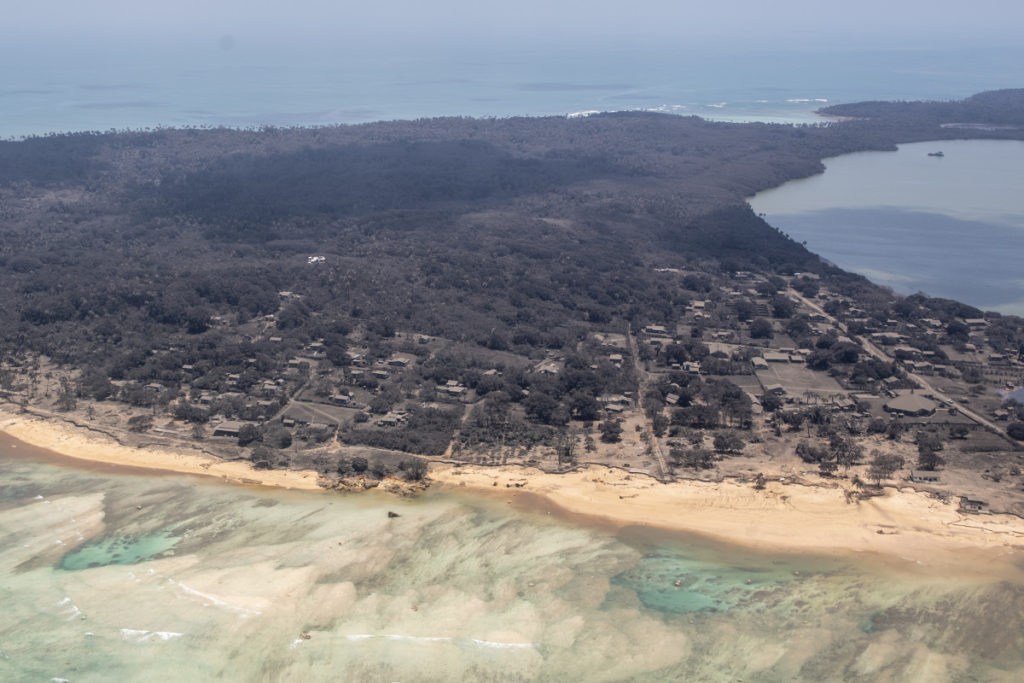NASA scientists estimate that last week's underwater volcano eruption in Tonga was equal to about 10 megatons of TNT explosive – more than 500 times as powerful as the atomic bomb dropped on Hiroshima at the end of World War II.
The underwater eruption obliterated the island of Hunga Tonga-Hunga Ha'apai – a small island located close to the volcano's crater. The explosion sounded like a thunderclap 800 km away in Fiji and was reportedly heard in Alaska. In addition, air pressure fluctuations caused by the blast were recorded in Brussels Saturday night.
"This might be the loudest eruption since [the eruption of the Indonesian volcano] Krakatau in 1883," Michael Poland, a geophysicist with the U.S. Geological Survey, told National Public Radio in the U.S.
Related News
NASA satellite photos show a plume of ash and gas rising 31 km into the air. The images also show ash, pumice, and sediment discolouring the water around what's left of the Hunga Tonga-Hunga Ha'apai island. Initial images suggest that not much of the young volcanic island is left above water; it first raised above water in 2014.
Ash spewed by the eruption and a related tsunami caused by the blast damaged other islands in the nation. On Monday, a New Zealand military surveillance plane flew over Tonga to assess the damage.

Before and after satellite images of Tonga volcanic eruption. Source, NASA
"Images show ashfall on the Nuku'alofa airport runway that must be cleared before a C-130 Hercules flight with humanitarian assistance can land," said Nanaia Mahuta.
Two Royal New Zealand Navy ships are also heading to Tonga to offer humanitarian aid. Importantly, fresh water supply is thought to be limited. The boats will carry 250,000 litres of water and have a desalination plant capable of producing 70,000 litres of drinking water per day, the Defence ministry reports.

